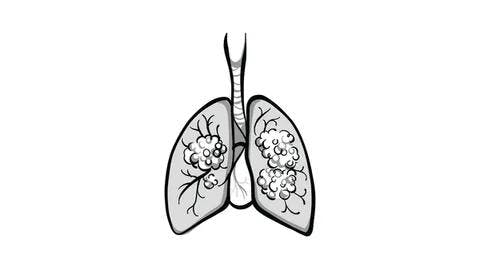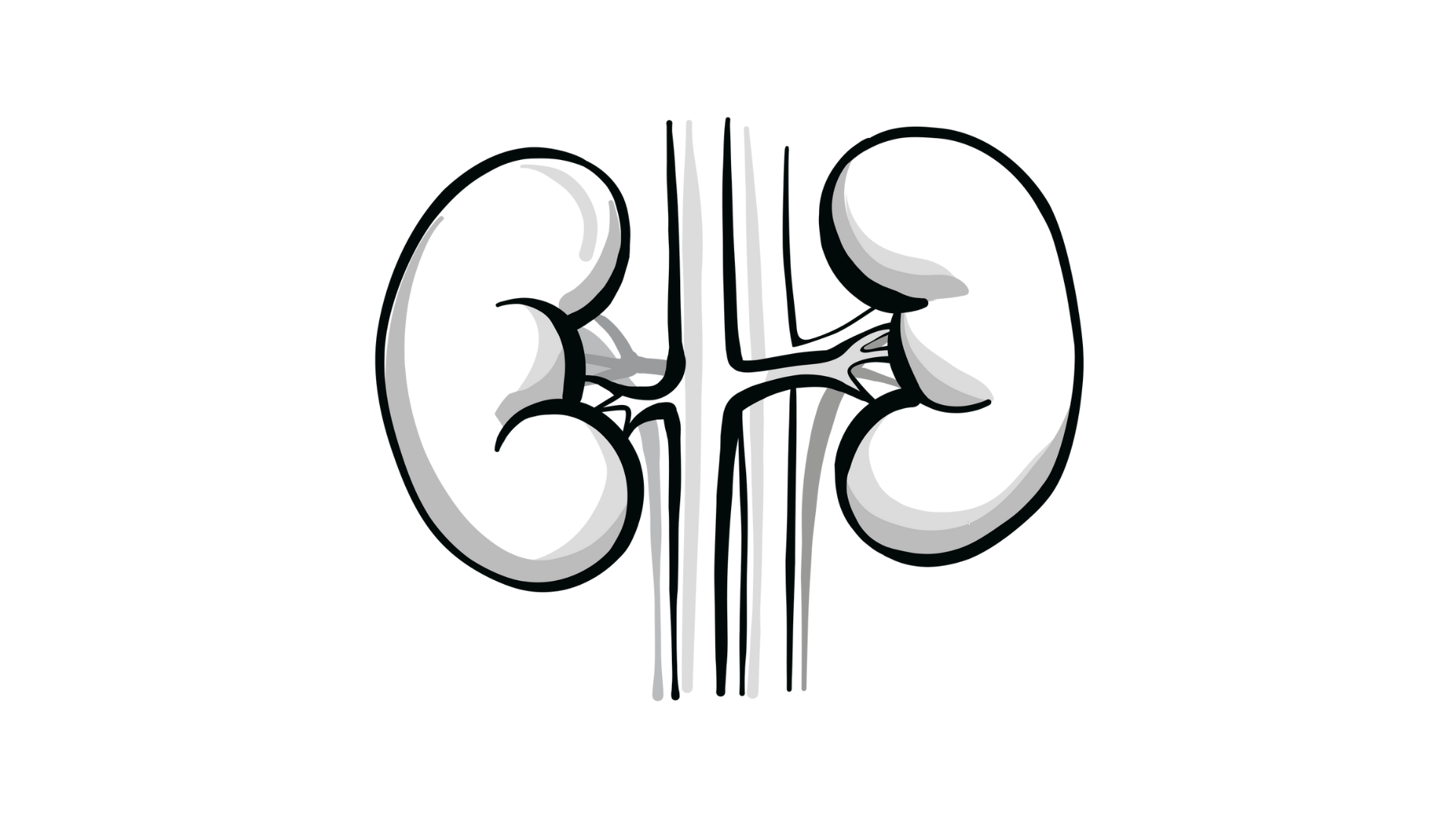Practice Updates in Lung Cancer Stem From Biomarker Testing and Up-Front Immunotherapy
Ajaz M. Khan, MD, MBA, CPE, provides his insights into the novel biomarkers and up-front immunotherapies that are changing the landscape of treatment for patients with lung cancer.

There have been many key updates for the treatment of patients with lung cancer, but perhaps the most important—and practice-changing— development is the ability to craft targeted therapies for these patients.
In an interview with Peers & Perspectives in Oncology, Ajaz M. Khan, MD, MBA, CPE, medical oncologist and chair of the Department of Medical Oncology for City of Hope Atlanta, Chicago, and Phoenix, discusses how genomic profiling has opened the door for the study of up-front immunotherapy in these patients. He also talks about the impact of new drugs and testing methods both in the wider treatment landscape and the community oncologist practice. The ability to test for biomarkers in these patients has opened avenues to more effective treatments and the opportunity to continue to treat patients with advanced cancer after other therapies fail.
Q: What has been the most important development in the lung cancer space?
KHAN: Genomic profiling is the most important [development], in my opinion, in terms of what we’re doing for all patients [with lung cancer]. If you look at it right now, there are about 230,000 new cases of lung cancer diagnosed annually and, unfortunately, [approximately] 130,000 deaths per year [due to the disease].1 Over the past 10 years, we’ve seen a 5-year survival that’s increased by 22%, and a lot of that has to do with the development of targeted immunotherapeutic drugs.2 So, certainly survival stage for stage has improved, but there are still [several] clinical issues that arise where there’s a significant need to continue to improve those outcomes for patients, both in the adjuvant and metastatic settings.
Q: Which clinical trials, ongoing or otherwise, have been the most practice changing?
We’ve seen a lot of new data, particularly in the neoadjuvant setting…. The KEYNOTE-671 study [NCT03425643] looked at chemotherapy with pembrolizumab [Keytruda] given up front.3 That study was done [not only] to improve outcomes and event-free survival [EFS] but also to get patients to a pathological complete response [CR]. It’s interesting because we never really looked at pathological CR as a means to treat [patients with] lung cancer, so this was a new way of looking at it. Patients in that trial [all had stage] IB to IIIA [disease] and were treated with pembrolizumab along with 4 cycles of chemotherapy followed by adjuvant pembrolizumab for a total of 1 year, and there was benefit in both EFS [and] in pathological CRs.3
Subsequent to that, we’ve had the release of the CheckMate 816 study [NCT02998528], which looked at [the use of] neoadjuvant nivolumab [Opdivo] with platinum chemotherapy, which also revealed a pathological CR rate of 24.0% [95% CI, 14.0%-31.0%].4 Recently, data for the neoadjuvant AEGEAN study [NCT03800134] were presented, which [consisted of] durvalumab [Imfinzi] and chemotherapy that had a pathological CR of 17.2%.5 Interestingly enough, all the patients [with stage] IB and IIIA [disease], and [patients positive for] EGFR and ALK mutations were excluded in the CheckMate 816 and AEGEAN studies but not in KEYNOTE-671.3-5 This is certainly a treatment option for our patients, and some of the discussions [around these treatments] are going to be that the data [are] relatively new and not very mature. So we don’t know the overall survival benefit of giving up-front immunotherapy to patients; however, the hope is that we shift the curve rightward and more patients are living following a diagnosis of early-stage lung cancer and undergoing surgical treatment.
Q: Are there any new targets of treatment in lung cancer to look out for?
We have the ADAURA study [NCT02511106], which looked at all patients [who] had an exon 19 or exon 21 mutation [in their disease. These patients] received 80 mg of osimertinib [Tagrisso] once daily following completion of chemotherapy, or as a single agent [for patients with] stage IB and IIIA disease.6 There was a 5-year survival advantage and a disease-free survival of more than 24 months compared with placebo [for patients on this trial]....
We also have the adjuvant data for patients receiving targeted therapy if they have ALK and/or EGFR mutations [in their disease]. Now, the 8 mutations we look for that are targetable in non–small cell lung cancer [NSCLC] include EGFR at No.1 and ALK in second [place]. We also have KRAS G12C, c-MET, RET, HER2, BRAF V600, and PD-L1.
A bit of the problem in these particular biomarkers...is that ALK and EGFR are the predominant ones, but when you look at the percentages in terms of patients with NSCLC that have enteric mutations, it’s about less than 1%. Then with particularly RET, KRAS G12C, and BRAF V600, we’re looking at about maybe 2% to 3% of the population. Then the more novel biomarkers we’re looking at include [CEACAM5], HER2 and HER3, MET, and TROP-2. So those are novel biomarkers that we’re looking at in several categories right now.
Q: What are some challenges and roadblocks that remain in this space? How can they be overcome?
The most up-front [challenge] that I see every day in the clinic is ensuring people get biomarker evaluation through next-generation sequencing [NGS] or RNA technology. RNA is slowly coming to the forefront, where we’re detecting particular mutations and looking at particular overexpression on some of these mutations to help us guide therapy. The other thing we notice is that there’s still been a bit of reluctance in terms of continuing immunotherapy beyond disease progression for patients with lung cancer.
I think that’s one of the next steps because, right now, if the patient progresses off chemotherapy and they don’t have any specific biomarkers to help guide targeted treatment, then they’ll usually receive docetaxel [Taxotere]. Those trials were done many years ago [and showed an] 8-month progression-free survival,7 where we know that [now] there are potential options to improve that significantly for patients. I think that’ll be the next guide in terms of treating patients both with nontargeted [and] targeted treatments.
Q: What advice do you have for community oncologists treating patients with lung cancer?
We’ve had patients here [who] had immunohistochemistry [IHC] testing done locally in the community, and it was somewhat inconclusive. In fact, 1 of the patients [who] we saw tested HER2 negative on the IHC and fluorescence in situ hybridization testing. Then we did their NGS, and the patient was HER2 amplified. We were then able to offer a drug to those patients [who] probably wouldn’t have gotten [this treatment] in the community [setting]. So one of the things I would tell community oncologists is [that] even if the testing is negative, still proceed to NGS, and that will certainly help guide therapy for you. [Additionally]…for patients who have rarer mutations, [you should] seek potential clinical trials for them, especially if they could get that in the first-line setting, potentially with targeted treatment. Then for patients [whose] targeted treatment [failed] in the second-line setting, there may be more options than chemotherapy, and certainly looking at a clinical trial for those patients is both rewarding and feasible.
REFERENCES:
1. Key statistics for lung cancer. American Cancer Society. Reviewed January 12, 2023. Accessed January 5, 2024. https://tinyurl.com/jvvs3a3y
2. Lung cancer key findings. American Lung Cancer Association. Updated November 3, 2023. Accessed January 5, 2024. https://tinyurl.com/33hcxjsz
3. Wakelee H, Liberman M, Kato T, et al. Perioperative pembrolizumab for early-stage non–small-cell lung cancer. N Engl J Med. 2023;389(6):491-503. doi:10.1056/NEJMoa2302983
4. Forde PM, Spicer J, Lu S, et al. Neoadjuvant nivolumab plus chemotherapy in resectable lung cancer. N Engl J Med. 2022;386(21):1973-1985. doi:10.1056/NEJMoa2202170
5. Heymach J, Harpole D, Mitsudomi T, et al. Perioperative durvalumab for resectable non-small-cell lung cancer. N Engl J Med. 2023;389(18):1672-1684. doi:10.1056/NEJMoa2304875
6. Phillips C. Lung cancer trial of osimertinib draws praise—and some criticism. National Cancer Institute. July 5, 2023. Accessed January 5, 2024. https://tinyurl.com/5n7mwu96
7. Manegold C. Docetaxel (Taxotere) as first-line therapy of advanced non-small cell lung cancer (NSCLC). Article in German. Onkologie. 2003;26(suppl 7):26-32. doi:10.1159/000076171

Enhancing Precision in Immunotherapy: CD8 PET-Avidity in RCC
March 1st 2024In this episode of Emerging Experts, Peter Zang, MD, highlights research on baseline CD8 lymph node avidity with 89-Zr-crefmirlimab for the treatment of patients with metastatic renal cell carcinoma and response to immunotherapy.
Listen
















